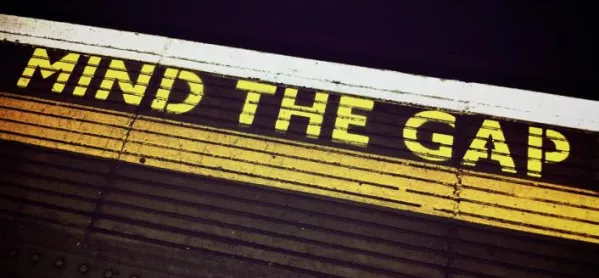One of the many complexities in teaching is that every pupil in the classroom will learn something slightly differently from their peers.
A mention of a fact or concept that was covered in a prior lesson will inevitably see a couple of pupils looking completely blank while the rest of the class nod and smile in recognition.
Watch teachers at work and you will see that they are experts in keeping a class together in their learning by spotting this and responding to it.
We use questioning to make sure that everyone is still with us, prompt those who seem to be struggling and endlessly circulate rooms to check on any misconceptions and to motivate those who seem to be flagging.
We also adapt our lessons as we go if we feel that pupils are not learning what we had hoped. We pick up on verbal and non-verbal cues as we talk or watch pupils work and quickly respond. This kind of thing becomes second nature to the teacher in the classroom.
But for the past few weeks we haven’t been in the classroom. Our usual methods of keeping a class together won’t have applied in these new, strange circumstances and those small differences in learning experiences that we are used to will have become gulfs.
Mind the knowledge gaps
We already know that there are huge variations in how much pupils are doing at home for a whole host of reasons.
Some will have been working through anything you had set them with dedication; others will have completed the work but may still not have learned what you had hoped; still others won’t have touched the work at all. And these gaps matter.
Our curriculum is a house of cards. What they are learning today is built on what they learned before. Start removing things from the base and sooner or later the whole thing comes collapsing down.
For example, towards the beginning of Year 8, our geography classes will look at East Africa and the barriers to development that people are overcoming there.
These lessons make use of a topic on India as an emerging economy that these pupils should be learning about at the moment. If they don’t do the work on India, or do it but don’t learn it, they won’t only have gaps in their knowledge on this topic but will have gaps in future topics as well.
There is no easy answer to this problem. Sadly, it means that teachers, many of whom have already been working harder than ever during the lockdown, will work to try to fill the gaps as best they can.
How to tackle the knowledge gap
My plan is to start by identifying the gaps when schools reopen.
I’ll create multiple-choice quizzes on key parts of the curriculum using Google Forms to quickly spot where there are problems.
To fill the gaps, I’ll use homework tasks targeted at those quiz results, set out to say “If you got question 1 wrong, you need to…”.
I will also need to look through our curriculum and work out which parts of it are based on what pupils would have been learning about at the moment.
I’ll then need to decide whether to adapt the curriculum to circumvent the missing knowledge or whether to try to plug the gaps as we go.
Every so often, I hear someone say “When schools reopen and return to normal…” and think they may be missing something.
Even leaving aside the practical changes that will have to be made to reopen schools, the changes we will have to make to our curriculum will be significant, too.
We will have to accept that we have little idea what has been learnt, by whom, over the past few weeks and approach our lessons with this in mind.
Being aware of this now and thinking of strategies to tackle the issue would definitely be a sensible approach.
Mark Enser is head of geography and research lead at Heathfield Community College in East Sussex. His latest book, Teach Like Nobody’s Watching, is out now. He tweets @EnserMark




